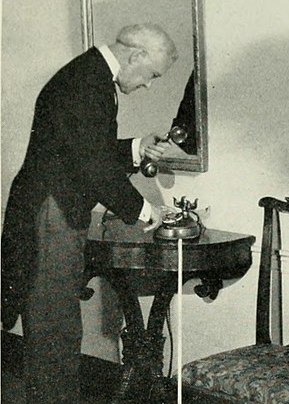My wife was wondering out loud this morning: What will all these unemployed people do once things get desperate? My reply was that they will find work as servants in the households of the better off. My wife was unconvinced. She's still thinks the solution to the current imbalance in society is some sort of universal basic income.
I told her it won't work. She told me that there won't be a return of servants to households. People aren't that desperate. My reply was that they will be, and the conversation ended at that. My wife and I have been through this before, and neither of us are convinced by the other's arguments. Time will tell who's right and who's wrong.
My thesis is that we're about to see the fourth and final horseman of the apocalypse. Things are already desperate for some, but it will get worse before it gets better. We'll see people starve and beg for food, and this will not be confined to poor countries. It will be everywhere. Those dependent on state hand-outs will not get their daily bread as promised.
This has happened spectacularly in the past, and will happen again. Both the Late Bronze Age Collapse and the fall of the West Roman Empire were marked by turmoil and death, followed by a prolonged period of relative peace. Without a central government to record things, and without super-rich individuals to build monumental structures, people were left to find their own way in life. What emerged was a social order in which things were kept private. Little was written down, and monumental buildings were rare. There were no cities, only towns and villages.
The lack of historic records from these periods, in combination with unfavourable climate, has made historians conclude that these periods were dark and dreary. However, there's a host of anecdotal evidence to suggest that they were exciting times with personal freedom and opportunities.
Folk lore and fairy tales have their origin in these times. They tell of opportunities and challenges. There are kings, queens, princes and princesses. There are servants, craftsmen and apprentices. All sorts of specialized skills are portrayed, and opportunity abound for those willing to go out in the world and seek employment.
Without a state to provide hand-outs and arrange for public work, people had to find work for themselves, and they generally started off as servants and apprentices for kings and craftsmen.
Kings weren't like modern kings. They didn't rule entire nations. Rather, they were private land owners, with capital and a household large enough to run things and also defend things in case of attacks by bandits and hostile neighbours. There was a king every so many kilometres up any country road. The heroes of old didn't have to go far to find a door to knock on and ask for employment.
The overall structure of this social arrangement was that of a wealthy couple with children, employing a number of servants, and paying for skilled labour in nearby villages. These couples were the kings and queens, and their children were princes and princesses. There were also poor land owners with cottages and small plots of land.
The scale of everything was modest. A kingdom was no larger than a municipality, and there was a great deal of social mobility. Good servants were rewarded. Otherwise, they'd move to another kingdom. Talent was recognized and put to use in learning a trade. There were local competitions and fairs. Aspiring young men could make it big, even if they were from a modest background. Young aspiring women also found their way inside this social network.
Importantly, there were hardly any idle hands. The alternative to being a servant was to be a beggar without a place to live. That's why people accepted lousy working conditions. Better to sleep on the stone floor next to the fireplace than under a bridge in the local village. But as soon as a servant proved his worth, he could demand better. No-one spent their entire life tending the fire and sleeping on the stone floor. It was too easy to find an alternative.
This, rather than the current state-centred arrangement, is the natural order of things, and hence the default structure we can expect after a systemic crisis. But it won't happen before things collapse. People will try almost anything before they give up on their promised daily bread. However, once they find themselves in the new order of things, they will find it far more agreeable than they fear. We're not going to regress much in terms of technology and modern comforts. Things will be much as they are today, only private and scaled down.
Education will be based on apprenticeships and on the job training. Capital will be well distributed. No-one will be much richer than a wealthy land owner. No-one will be poorer than a property-less servant. People will not be under water in debt. Money will be based on gold. Most things will be paid for in cash. Credit will be rare. Banks will be small and either deal in capital investments or serve as agents for electronic transactions. Most noticeable perhaps, will be the return of the in house servant. Middle income families will afford to hire a helping hand. Those better off will have several servants, and those richer still will have a whole little troupe of people working for them if they so choose.
 |
| Butler |
By American Telephone and Telegraph Company American Telephone and Telegraph Company. Information Dept - Title: Bell telephone magazine Year: 1922 (1920s), CC BY-SA 4.0, Link
No comments:
Post a Comment